Mental math skills Addition Worksheets for Ages 3-9
7 filtered results
-
From - To
Enhance your child's arithmetic abilities with our targeted "Mental Math Skills Addition Worksheets" for ages 3-9! These expertly designed worksheets focus on improving youngsters' proficiency in addition through mental calculations. Perfectly crafted to align with educational standards, they emphasize fun and engaging methods to build speedy and accurate addition capabilities. Your child will gain confidence and develop a solid mathematical foundation with varied questions that range from basic sums to more complex problems. Ideal for supplementing classroom learning or homeschool activities, our worksheets cater to all learning paces and styles, ensuring that every child progresses comfortably. Start enhancing mental math skills today!
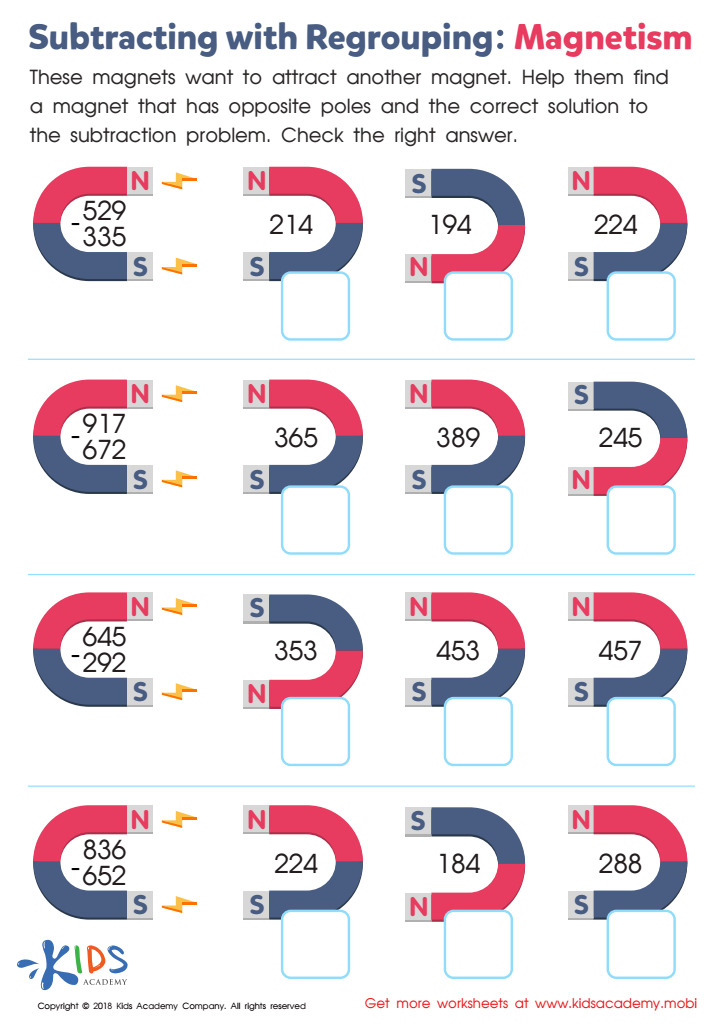

Subtracting with Regrouping: Magnetism Worksheet
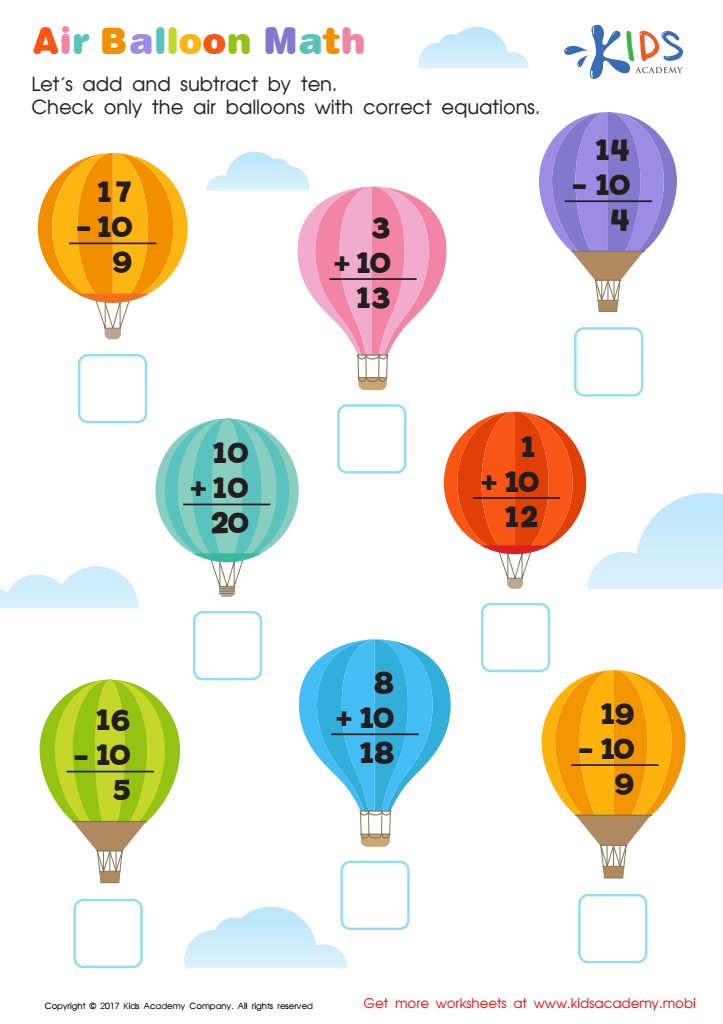

Air Balloon Math Worksheet
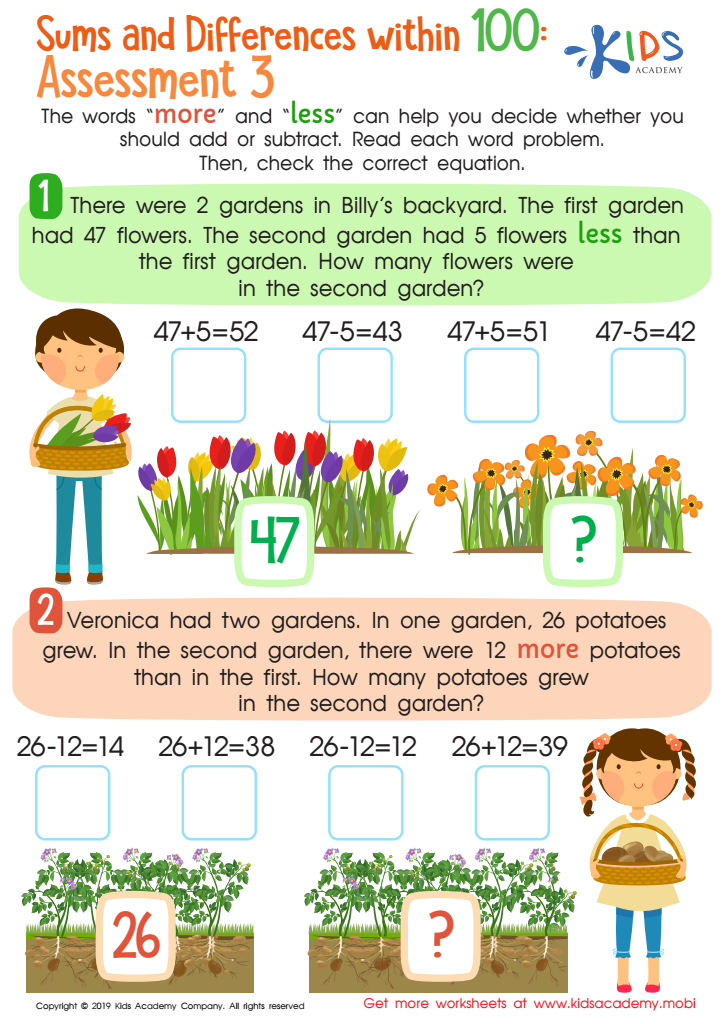

Sums and Differences Within 1 - Assessment 1 Worksheet
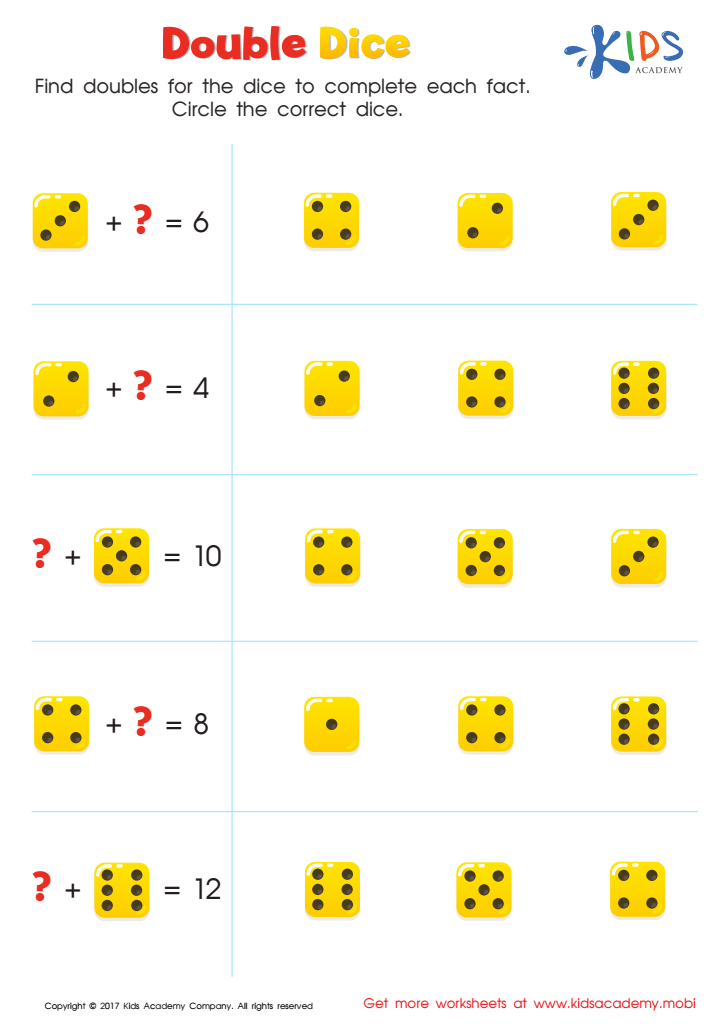

Addition Facts: Double Dice Worksheet
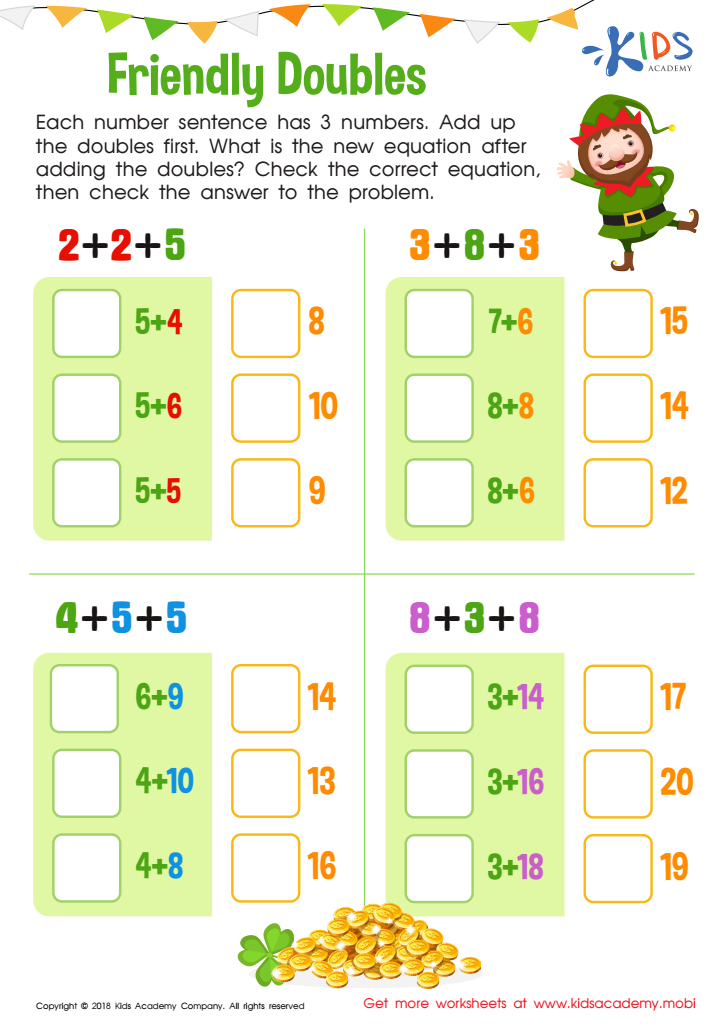

Friendly Doubles Worksheet
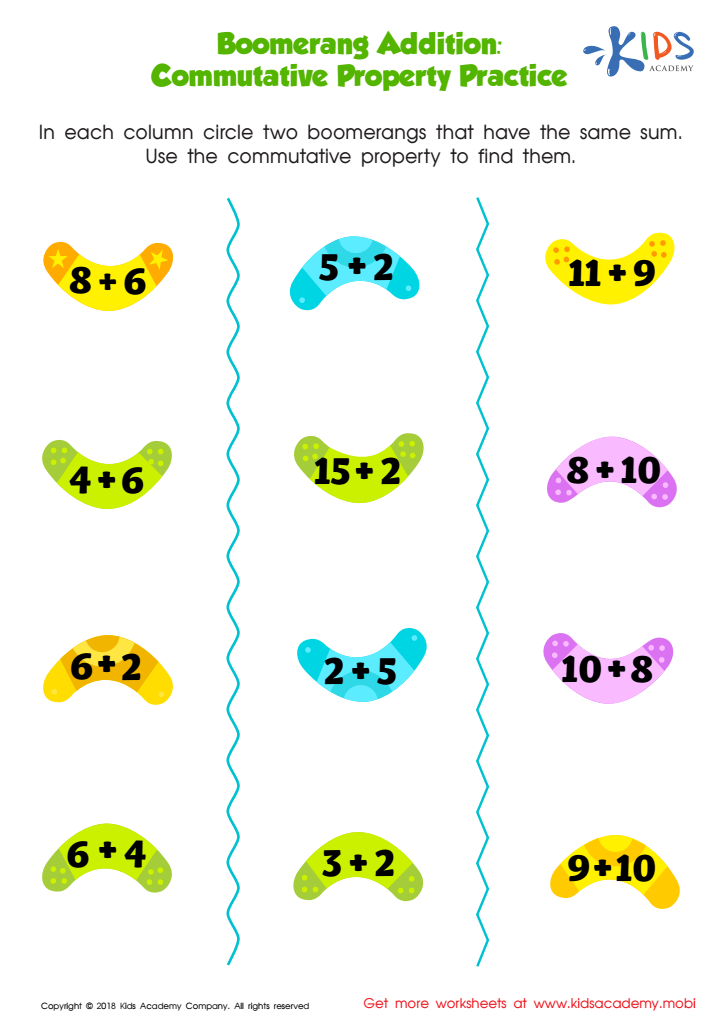

Boomerang Addition Worksheet
Cultivating mental math skills, especially for addition, during the early years from ages 3 to 9, is immensely beneficial for children and should be a priority for both parents and teachers. Firstly, early mastery of mental math lays a strong foundation for future mathematical learning, making it easier for children to tackle more complex math problems efficiently. Kids who develop strong mental math skills gain confidence in their abilities, which enhances their overall academic self-esteem.
Mental math encourages critical thinking and problem-solving. When children practice addition without relying on paper or calculators, they engage their brain more actively. This stimulates cognitive processes fundamental to overall intellectual development. Furthermore, being able to quickly compute addition in daily situations, like figuring out total costs while shopping or sharing snacks evenly, reinforces practical life skills.
For parents, nurturing these skills at home fosters a supportive learning environment that complements school efforts. Teachers, on the other hand, can selectively integrate mental math challenges into their curriculum to make learning interactive and fun. Above all, developing mental math capabilities at an early age helps children view math positively, as a tool for exploring the world, rather than a daunting subject, thereby setting the stage for lifelong numeracy skills.
 Assign to My Students
Assign to My Students























